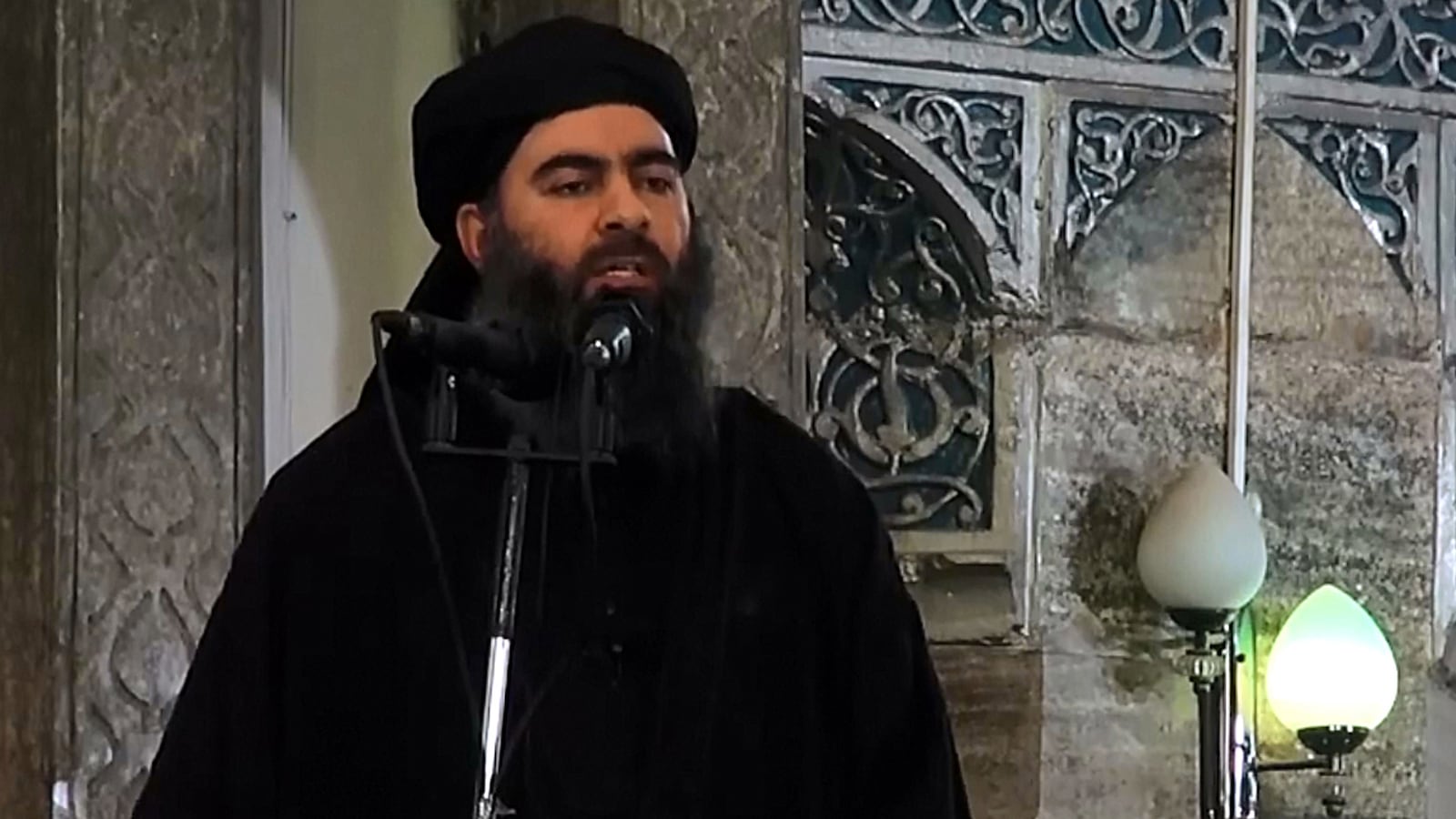Plenty of experts have weighed in on the likely effects of the decision by the extremist movement ISIS to re-establish the Caliphate. Let me be the first to add, though, that it will probably create a massive revival of Antichrist speculation among evangelical Christians. The new Caliph, “Ibrahim,” thoroughly looks the part of a super-villain, and his initial statements exactly fit the bill. Most recently, he has promised that followers who obey him “will conquer Rome and own the world.”

How worried should the West be? As J. M. Berger recently remarked, ISIS is following an extremely high-risk strategy, but I would go further and suggest that the whole modern Caliphate idea is itself a sign of desperation, a response to systematic political and cultural failure.
Until 1924, the Caliphate was the preserve of the Ottoman Empire, which was succeeded by a secular Turkish state. The end of World War I, which had destroyed that empire, also created several new states and nations, which are largely or predominantly Muslim. The proliferation of Muslim-majority states continued with decolonization in the 1950s and 1960s.
Yet for a pious Muslim believer, the experience of those states was bad to the point of being catastrophic. Many espoused state secularism, and even if they made notional nods to Islamic doctrine or law, they were deeply intolerant of Muslim political organizations. (The most influential Islamist thinkers tended to be executed or assassinated by Muslim state authorities). Most of those states, moreover, failed miserably in basic functions. As successive Arab-Israeli conflicts proved, they were hopelessly inept militarily, and even wealthy nations like Saudi Arabia depended wholly on Western support. The post-1918 state system in the Islamic world looked deeply flawed.

That weakness was evident by the 1970s, even before the vast economic and technological gulf that opened between the Islamic world and many non-Islamic societies. If Muslims were grudgingly used to being outpaced by Christians, now they found themselves left in the dust economically by Jews, Hindus, Confucians, and Buddhists.
So desperate was the situation as to throw real doubt on the state itself as a possible mechanism for advancing Islamic causes. Already from the 1920s, groups like Egypt’s Muslim Brotherhood were advocating a wider pan-Islamic regime, under a restored Caliphate. Some Islamists went much further, and presented ideas that are now fundamental to groups like ISIS and al Qaeda.
The best known was Brotherhood alumnus Sayyid Qutb, whom the Egyptian state executed in 1966. Although he was a wide-ranging thinker, two of his themes had a particular influence. One was that of ignorance, jahiliyyah, a term commonly used to describe the barbaric confusion that prevailed among the Arabs in pre-Islamic times. Qutb, though, applied the word to the contemporary world and the state order, and especially to Islamic states and societies. As constituted, Islamic societies were at least as negative and harmful as the United States or Israel, and it was a delusion to expect anything better from them. They were all failed states. The only solution to jahiliyyah was full acceptance of Shariah law.
Still more sweeping was the notion that most Muslims in the world were not Muslim in any authentic sense. They were in fact infidels or apostates, and must be recognized as such in a process of takfir, excommunication, or actively reading them out of the faith. Only devout activists could qualify as true Muslims. In Western political terms, we might think of them as a Leninist vanguard. Jewish or Christian thinkers would speak of a righteous remnant.
Qutb himself did not make the Caliphate central to his thought, but his disciples saw it as the only antidote to jahiliyyah. This is the view of Hizb ut Tahrir, a transcontinental radical group that is the bane of intelligence agencies across Europe and central Asia, and also of the Qutb-inspired network Takfir wal Hijira. Al Qaeda has repeatedly used the idea. Al Qaeda in Iraq broadcasts the Voice of the Caliphate on the Internet. In Southeast Asia, the much-feared Jemaah Islamiyah proclaims as its goal a Caliphate that will replace the existing nation-states stretching from Indonesia to Thailand. And now, famously, we have the Movement Formerly Known as ISIS.
Put another way, the new declaration of the Caliphate is founded on doctrines that are guaranteed to arouse the deadly opposition of all states, Muslim or others, whose legitimacy it fundamentally rejects. It denies the true Muslim status of virtually all enemies, even active Islamists who do not toe the party line. And it demands the creation of a new state order in the middle of a bloody warzone. This is, in every conceivable way, a recipe for catastrophe.
The Caliphate idea also carries within it its own destruction. Now the Caliphate is, so to speak, out of the bag, competition for the office will be intense, and violent. We can expect multiple rival Caliphs who will denounce and excommunicate each other, while factions will fight each other for the prized office. Expect many assassinations and internal coups.
Historically-minded Islamists might recall that back in the seventh century, three of the first four Caliphs perished by assassination. The murder of the fourth, Ali, launched the Sunni-Shia schism within Islam that is still a gaping wound 13 centuries later. It is not a happy precedent.
Philip Jenkins, author of The Great and Holy War: How World War I Became a Religious Crusade, is the Distinguished Professor of History and co-director of the Program on Historical Studies of Religion at the Institute for Studies of Religion at Baylor University.






